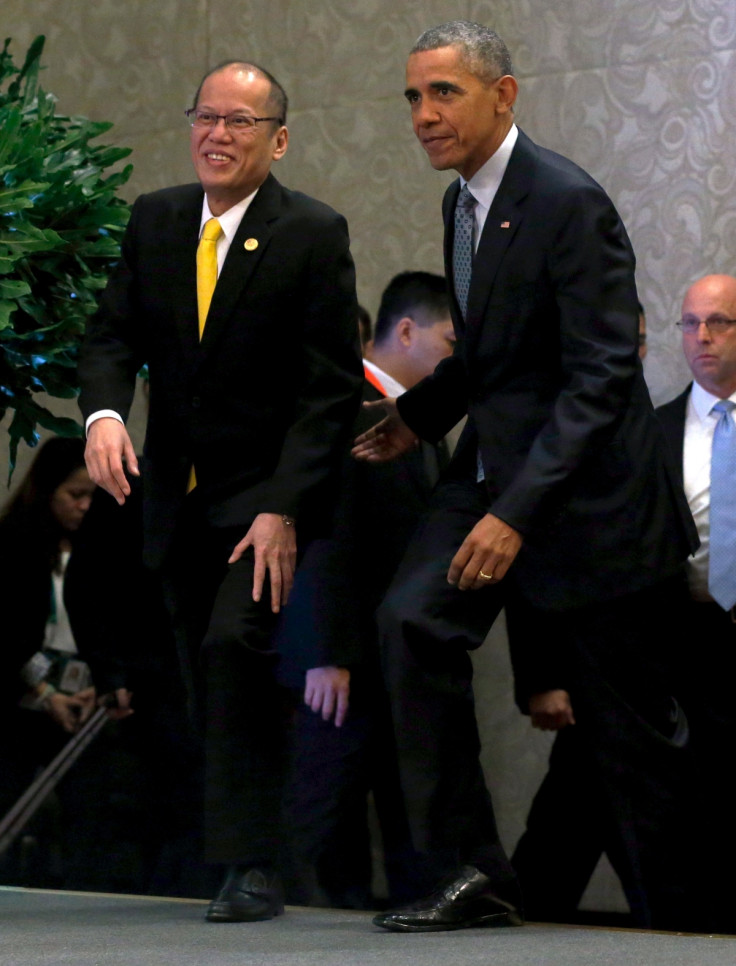China shows 'great restraint' in South China Sea dispute says Vice Foreign Minister Liu Zhenmin

The Asia Pacific Economic Cooperation summit in Manila has already seen both the US and China exchange strong words over whether the territorial dispute over South China Sea should be kept off or on the agenda. The US wants the issue on the itinerary while China naturally wants it off the table.
Manila, which is hosting about 20 heads of state and government including US President Barack Obama and Chinese President Xi Jinping, has decided to steer clear of the issue despite being one of the many claimants to the territory, saying that it will not bring up the maritime dispute to avoid embarrassing Xi. But it added in a tactical move that it could not prevent other countries from doing so.
The verbal exchange started when Chinese Vice Foreign Minister Liu Zhenmin said that China had exercised "great restraint" over the South China Sea territorial dispute and that China was the real victim as dozens of its islands and reefs had been illegally occupied by three of the claimants. He did not identify the claimants.
"The Chinese government has the right and the ability to recover the island and reefs illegally occupied," Liu told reporters in Beijing. "But we haven't done this. We have maintained great restraint with the aim to preserve peace and stability."
China has overlapping claims with Vietnam, the Philippines, Malaysia, Taiwan and Brunei in the South China Sea. Beijing's claim covers more than 80% of the strategic waters, which overlap those of other claimants.
Tension in the area has been mounting after China started building artificial islands including three airfields in the Spratlys. Liu even went further and defended the size of the airstrips. "Actually, the bigger the facilities, the more they can be used for civilian purposes."
Obama's warning to China
Last month, a US guided-missile destroyer, the USS Lassen breached the 12-nautical mile zone China claims around the Subi and Mischief reefs in the Spratly Islands as part of its Freedom of Navigation programme. It did not stop there. Earlier this month, the US sent two of its B-52 bombers near the artificial islands despite being warned off by Chinese air-traffic controllers. The US maintained that the B-52s "were on a routine mission" in the South China Sea.
Obama, who arrived in Manila ahead of the Apec summit, delivered a strong message to China by visiting the Gregorio del Pilar, the main warship of the Philippines. The navy frigate was formerly a US Coast Guard cutter until 2011.
Flanked by two dozen US and Philippines uniformed navy personnel, Obama warned China: "We have a treaty obligation, an iron-clad commitment to the defence of our ally the Philippines. My visit here underscored our shared commitment to the security of the waters of this region and to freedom of navigation.
He did not stop there. He said two more US ships will be transferred to the Philippines as part of a two year $250m package to enhance regional maritime security. The first will be a research vessel to help navigate territorial waters and a coast guard cutter for "long endurance patrols."
Philippines President Benigno Aguino and Japan's Prime Minister Shinzo Abe are also expected to agree on a deal that will see Tokyo supply Manila with used military equipment, possibly including an aircraft that could be deployed to patrol the disputed territorial waters, Reuters reported quoting sources.
© Copyright IBTimes 2025. All rights reserved.






















